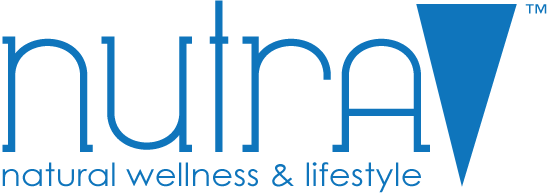The FDA’s Role in the Supplements Industry
At NutraV, we guarantee to provide you with products that are not just beneficial to your health, but are also 100% safe to put in your body as well. The article below details FDA regulations and how we comply with them to provide you with best supplements for an elevated life.
Have you noticed that in some cases on vitamin/supplement websites you'll see the disclaimer:
"These declarations have actually not been assessed by the Food and Drug Administration. This product is not intended to detect, deal with, cure, or avoid any illness."
To the untrained eye, this declaration may look a little suspect, but it is actually fairly regular and required by the FDA in specific instances. What precisely is the FDA's function in the supplement industry, and what do those 2 little sentences even mean? Let us take a look!
First things first! What is the FDA?
The FDA or the U.S. Food and Drug Administration is a federal agency that is responsible for regulating products that impact public health. Some examples of such products include food, pharmaceutical drugs, medical gadgets, cosmetics, and even tobacco products. The FDA plays an important part in guaranteeing the safety of the products that us as consumers utilize every day. However, it is not the source of approval for all markets that it manages.
What does the FDA have to do with supplements?
In the dietary supplement industry, the FDA acts as an enforcement and regulatory agency. What this consists of is defining and imposing what supplement businesses can and cannot claim about their products.
To guarantee public safety, the FDA has specified Good Manufacturing Practices (GMPs) that it implements through inspections with the authority to prosecute, take and get rid of dangerous products from the market. The FDA can likewise identify if an item is Generally Recognized As Safe (GRAS) after reviewing proof.
How were the FDA's guidelines identified?
Up until the late 1930s, the food and drug market were extensively uncontrolled, except for a piece of legislation from 1906 that restricted misbranded and adulterated food and drugs.
In the early part of the 20th century, many individuals died from using consumer items that were not safe for human consumption, which in turn, stimulated public outrage and political pressure from consumers. In 1937, the concern reached a turning point when an untested medication caused the death of numerous patients, which consisted of many children, quickly after its release to the market. As a result of this tragedy, congress passed the Food, Drug, and Cosmetic Act in 1938.
Drugs, which are specified as items used for medical functions, remain under a much stricter policy. This line in the sand-- medical (drug) vs. nutritional (food) -- is essential due to the fact that under the FD&C Act, vitamins and other supplements are treated as a subset of food items rather than drug products.
What is the distinction between a drug and a supplement?
According to the FDA, drugs are meant for dealing with, avoiding, reducing, diagnosing, or treating diseases. Drugs are heavily controlled. Clinical trials on human subjects need to ascertain that a pharmaceutical drug is safe and effective for its desired usage. Once complete, the drug needs to be manufactured under regulated conditions and packaged to satisfy rigorous labeling requirements prior to it being authorized by the FDA for customer usage.
Unlike drugs, the FDA says that supplements are just for nutritional functions. While the FDA does have some guidelines for manufacturing and labeling nutritional supplements, they have different standards for testing, security, and efficacy than pharmaceutical drugs.
How does this affect what supplements are able to claim?
The Dietary Supplement Health and Education Act of 1994 (DSHEA) specified the role of supplements and outlined what vitamin companies could legally state about their products. The act dictates that since supplements are not drugs, supplement companies can not indicate, insinuate, or state that their item diagnoses, deals with, cures, or prevents disease of any kind.
The FDA has further interpreted some normal conditions as disease precursors or markers. This is why users may see very vague phrasing about what a supplement actually does. This is done to comply with FDA's guidelines on approved dietary supplement claims.
The disclaimer mentioned above is compulsory for dietary supplements if they make any claims about affecting the structure and/or function of the body. Further, the FDA implements claims to make certain that they are following approved standards for dietary supplement permitted claims.
Are any supplements authorized by the FDA?
No. The FDA does not "authorize" nutritional supplements due to the fact that it does not authorize foods. The FDA only authorizes pharmaceutical drug items. However, the FDA does monitor supplement production and labeling. They also regularly inspect businesses to ensure that they are satisfying guidelines. If a supplement company does not comply with FDA guidelines, the FDA can prohibit them from offering their product within the U.S.
The FDA does play an important role in regulating the supplements industry. At NutraV, we make sure to keep updated and comply with these regulations, because wellness, and your health & safety are always at the forefront of our company, so you can live naturally better.






